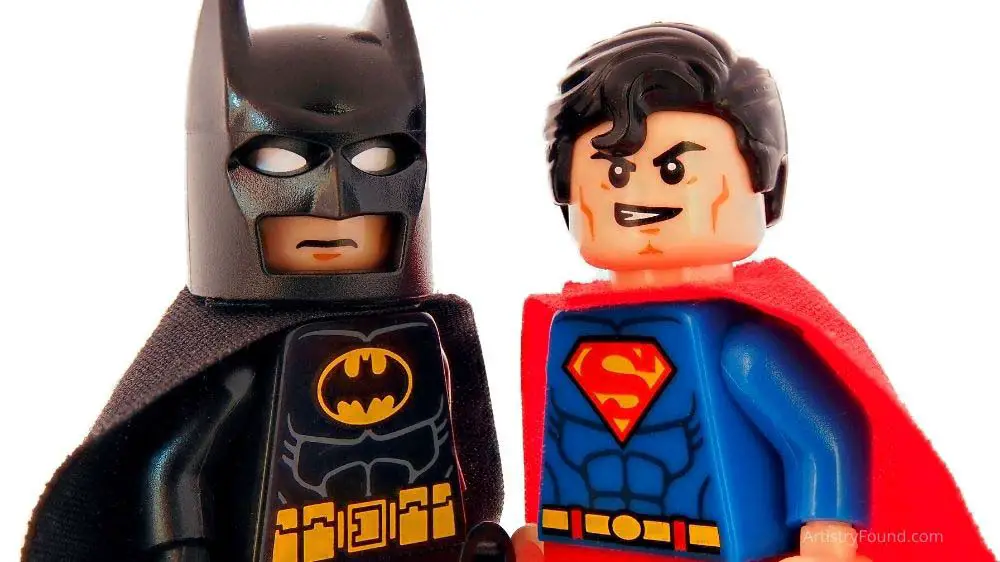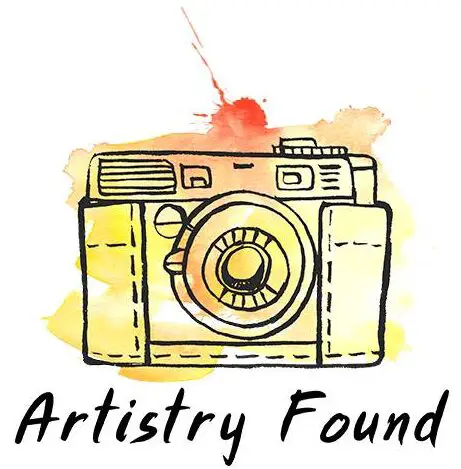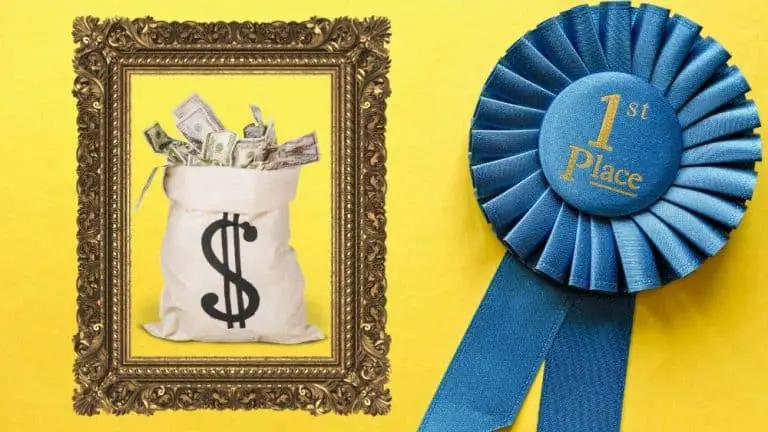Your Guide to Selling Fan Art Legally (Explained)
If you love a specific cartoon series, video game, anime, or movie, you may want to artistically recreate the characters yourself. This is referred to as fan art, and creating fan art is a common practice. However, if you’re thinking of selling this type of art, you’ll need to know if it’s even legal to sell fan art in the first place?
It is legal to sell fan art if you get permission from the original copyright owner. Fanart does not meet the requirements of the fair use act, and you may get into legal trouble for making and selling fan art without permission from the owner of the intellectual property in question.
In this article, you’ll learn some of the technicalities of selling fan art. First, I’ll go over some of the legal complications that may arise as a result of selling fan art. Then, I’ll show you how to get permission to create, promote and sell your fan art while staying on the right side of the law.
Finally, I’ll tell you about three companies that will allow you to sell your fan art online 100% legally.
What Is Fan Art?

(This article may contain affiliate links and I may earn a commission if you make a purchase)
Before going into the technicalities of making and selling fan art, it’s important to know some basic details about fan art.
Any fictional character that’s based on the works of someone else can be referred to as fan art. People have created fan art of their favorite characters as far back as comics and fan fiction have existed. Some authors and artists even encourage their followers to make and share fan art of their characters by promoting the fan art in the original work itself.
More recently, fans have started selling unofficial fan art for money. Selling fan art can take many forms. For example, you may create an artwork based on your favorite comic book character then sell it off as a separate comic, creation, or decorative work of art. You can also create t-shirts with the image of your favorite character, etc.
Each of these is a different way of selling fan art, and they’re mostly illegal. According to copyright law, only the creator of these characters has the right to use them in this manner without permission.
Most people get away with selling fan-based visual art as long as they don’t get too popular. While you may also get away with it for some time, it doesn’t mean you should try. There are always legal ways to do anything, and this post will show you the legal ways to make money from your impressive fan artwork.
Is It Illegal to Sell Fan Art?
While it is legal to create fan art, distributing and selling it is illegal (copyright infringement) and may invoke copyright lawsuits. While most creators will not go after every fan art creator with a lawsuit, it is important to know you’re breaking the law by selling an idea that isn’t original.
While you might see a lot of people creating and selling fan art and merch based on it, that doesn’t make it legal. Also, some of the people you’ve seen selling fan art may have permission from the trademark owner. If you don’t, you are putting yourself in legal jeopardy.
You don’t even have to sell the fan art you make to invoke a lawsuit. The original art creator may take legal action if they believe that your use of their work is illegal, and is preventing them from making more sales in any way. For instance, if you give your fan art away for free in large quantities or post it on social media, you may be harming the original creator’s ability to make money from their efforts.
If you’d rather stay on the right side of the law, you will want to stay away from selling and sharing the fan art you make, even if the copyright owner doesn’t seem to be interested in suing people who do. Think about it; the owner of the copyright can change their mind about pursuing the infringement at any time.
Receiving a Cease and Desist Letter For Selling Fan Art
It’s important to note that depending on where you live, selling fan art is usually not a criminal offense. You can be in financial jeopardy from civil lawsuits, but it’s very unlikely that you’ll ever be arrested or imprisoned for making and selling fan art.
It is, however, quite likely that you will receive a legal Cease and Desist letter or email from the copyright holder’s attorney.
If you’ve already sold some copies of your fan art illegally and unknowingly, it’s best to stop doing it once you know it’s illegal. If you continue to sell your fan art, the copyright owner may send a cease and desist letter, with guidelines outlining what they think you owe them for the copies you’ve already sold.
Although most companies won’t be willing to pursue a copyright case with someone who isn’t selling on a large scale, there are ways that they can shut down your private website or get you banned with the platforms your using to sell and display the work.
How to Sell Fan Art Legally
Since it’s illegal to sell characters you created to mimic the work of other creators and artists, is there no way to sell fan art legally?
Fortunately, there are ways you can sell fan art legally without any risk of lawsuits or fines. However, it’s a long process, and it’s not as easy as it may seem. Here, I’ll show you the processes of selling fan art legally, but it’s up to you to make sure that you’ve done everything you need to do to protect yourself from being sued.
Note: Personally, before attempting to sell fan art, I’d recommend speaking with a qualified Copywrite attorney.
1. Sell Your Fan Art by Geting Permission from the Original Creator
This is the most tasking step of selling fan art. Not only do you have to craft a compelling email that will make the copyright holder want to permit you to sell their intellectual property (IP), but you will need to be prepared to pay a licensing fee to do so.
Even if they are open to letting you pay a licensing fee for the rights to sell your fan-based art, the fee could be quite high depending on the popularity of the copyrighted character you’re creating a derivative work of. If you’re not willing to pay upwards of $50,000 for the licensing fee, trying to get permission will seem like a futile endeavor.
Assuming you’re willing to pay that much, most big brands already have a standard reply for fan art requests, regardless of how mouth-watering your offer is. Some won’t even let you pay a licensing fee; the default answer is always “no, we can’t grant you permission at this time.”
If you find any online resource that suggests that the original character creator doesn’t accept fan art requests, you can still try asking for permission to sell your fan art. Here are the steps required to do that.
- Do some research about the original copyright owner

Getting permission involves contacting the copyright owner to ask for it, and you can’t contact the copyright owner without knowing a thing or two about them.
Before penning your request, find out what you can about the individual or organization that owns the copyright for the original artwork. If it is an organization, try to learn if they will be willing to license fan art, if they charge a licensing fee, and how much licensing fee they charge.
You should also try to discover the best way to contact them for these types of inquiries. For instance, they may have an agent or a dedicated resource to handle copyright-related requests.
Once you know who owns the copyright and who to contact, you’re ready to submit your request to sell variations of their art legally.
- Send a written request to the copyright owner, asking for permission to sell your fan art
You can either send an email or a printed letter, or both. Sending both is usually the best option as some companies ignore all written letters or emails, and sending both offers the best chance of your getting through. You should generally avoid calling to make your request, as that reduces the chances of your request reaching the actual copyright owner.
In the message you’ll send to them, you should let them know which of their works you wish to sell, how you want to sell them, and where. You can even leave links to your e-commerce stores and social media handles if you plan to use those to market your fan art.
- Wait for a response before proceeding
A request letter doesn’t serve as a go-ahead from the copyright owner. You don’t only need to notify them about your willingness to sell their intellectual property, you need to get written permission from them to stay on the safe side of the law.
If the copyright owner is a big company like Nintendo, you should brace yourself for a negative response. Frankly, the chances of getting a company like that to permit you to sell your fan art are pretty small, but nothing is impossible.
However, if the copyright owner is a small company or an individual, your chances of getting a positive response become much higher. In these cases, the chances are higher that you’ll be allowed to pay a licensing fee to sell your fan art.
If you receive a negative response from the copyright owner after a request to sell your fan art, you should avoid selling it at all costs. Doing so means you are willingly infringing on their copyright, which is a much more serious legal case than doing it without asking for any kind of permission in the first place.
2. Sell Fan Art Once The Copyright Has Expired
While this may be a lot less practical and a lot more time-consuming than the previous option, it’s still a legal option and it will keep you out of trouble if you follow this step.
This works on the premise that copyrights don’t last forever. If the copyright is owned by an individual, they only last until 70 years after the copyright owner dies. If it’s owned by a corporation, the copyright will last for 95 years from the date of publication, or 120 years if it was never published.
If you’re willing to wait until the copyright for the fan arts you create expire, you may not have to worry about copyright. This may sound funny and impractical, but there is a minuscule chance that your favorite fan art will soon be copyright-free, and you’ll be able to sell it without worries.
One scenario is if the original creator of the comic or story has been long dead even before you were born. In a couple of years, the copyright may expire, and you’ll be free to use the work in the public domain.
But again, this is very impractical considering that the most popular characters for fan art come from more recent times and the copyright is in full effect.
3. Move to a Copyright-Free Country to Sell Fan Art

If you can’t get the copyright holder to allow you to sell your fan art and you aren’t willing to wait for 70 years or longer, you can simply move to a country where the copyright law doesn’t apply.
At the moment, there are no copyright laws applicable in Turkmenistan, Eritrea, or San Marino. If you’re willing to move to any of these three countries and sell your fan art within their markets, you won’t risk any fines or lawsuits.
However, the combined population of these three countries is less than 10 million, which is about one-fourth of the population of California alone. Also, there is no guarantee that the people in these countries are even interested in the fan art that you’re trying to sell.
While you can avoid legal trouble by selling your fan art in a copyright-free country, you’ll also miss out on a lot of money, which is the main flaw of this method.
4. Use a Service That Lets You Sell Fan Art Legally (Best Way!)
If you’ve sent a letter or email to request permission to sell your fan art, you almost certainly received a negative response. Fortunately, that isn’t the end of the road, especially if the owner of the copyright partners with a website that lets you sell legal fan art.
The way these websites work is pretty straightforward. They each have a fan art program where they partner with the copyright owners to allow the sales of the IP on their website, and they partner with artists who create those materials.
When the artist sells the fan art on the platform, the platform deducts a specified percentage from the sale as their profit and pays royalties to the copyright owner. The remainder of the sale then goes to the fan artist.
If you’re looking for a service like this, you can start with Redbubble. Redbubble is the most popular fan art selling service online, as they have partnerships with scores of brands already. You only have to join their partner program, agree to the terms, create your fan art, and make your money.
Teepublic is another website where you can sell your fan art legally, but in this case, you make them into t-shirts, as the name implies. Since Teepublic has been acquired by Redbubble, most of the brands partnering with Redbubble also now work with Teepublic.
Design by Humans is similar to Teepublic, but it is not owned by Redbubble. It also lets you create t-shirts with your fan art and pays a commission on every sale. Design by Humans must approve your designs before you can sell them as tees on the website, but you don’t have to worry about copyright after approval.
Final Thoughts on Legal FanArt
While most avenues of legally selling fan art won’t work well for an individual artist, all is not lost.
Selling your fan art through an online company that has legal agreements already in place with several companies and brands is an ideal solution if you love creating fan art and want to get it out into the market.






